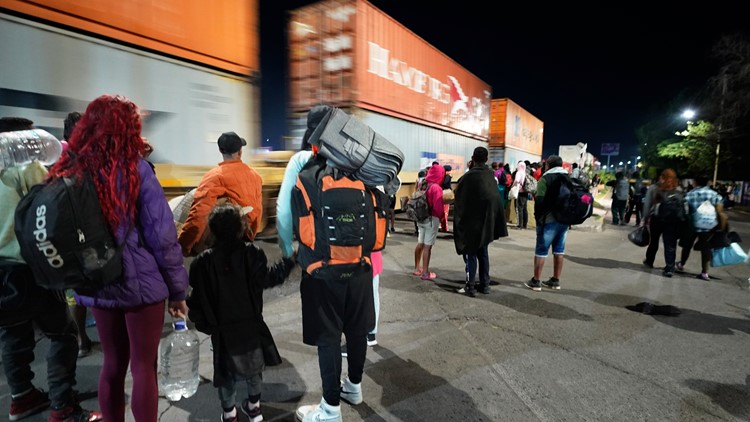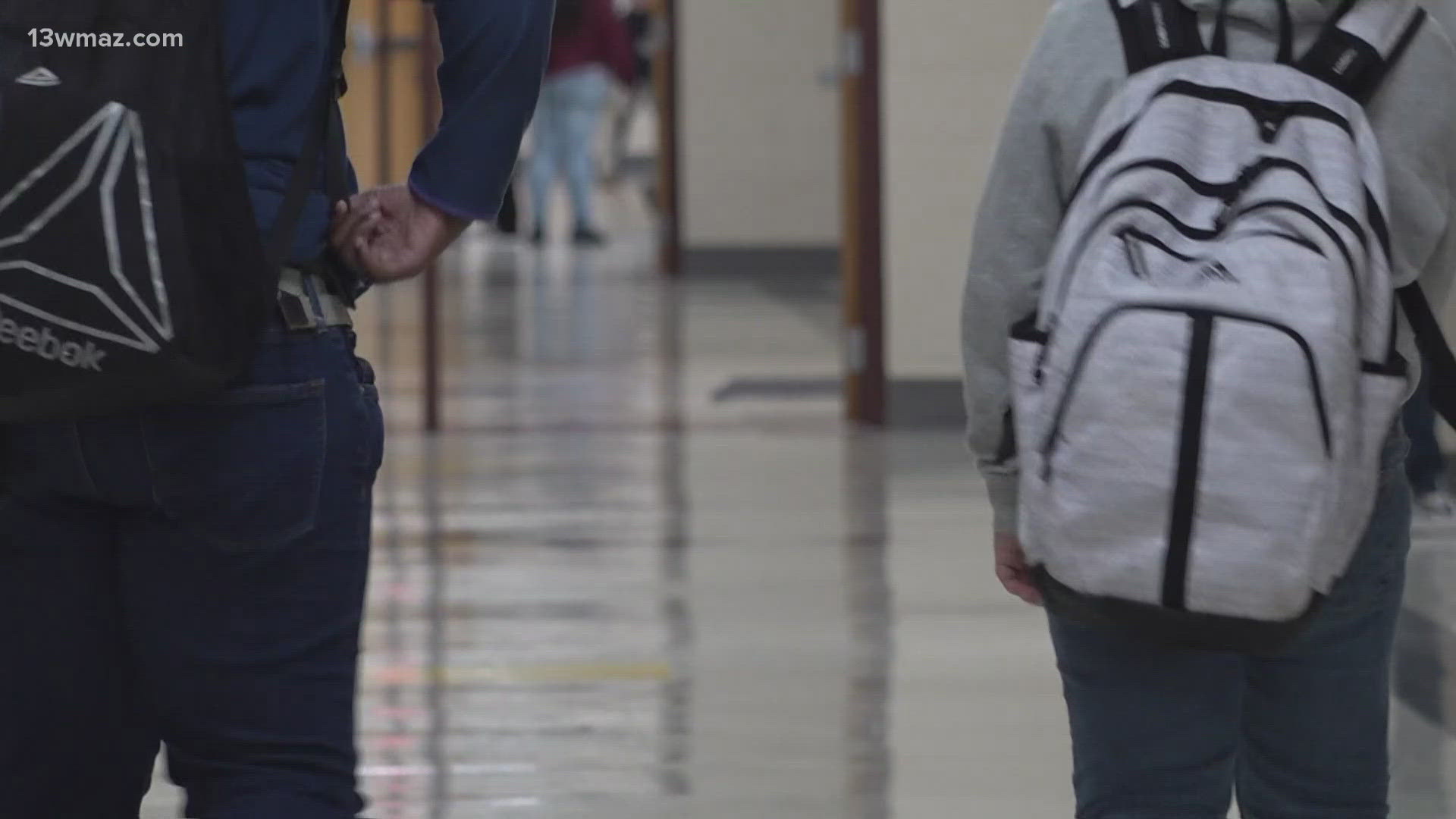IRAPUATO, Guanajuato — As a train roared in the distance, some 5,000 mostly Venezuelan migrants hoping to make it to the U.S. snapped into action.
Families with young children sleeping on top of cardboard boxes and young men and women tucked away in tents under a nearby bridge scrambled to pack their things. After the train arrived on the outskirts of the central Mexican city of Irapuato, some swung their bodies over its metal trailers with ease, while others tossed up bags and handed up their small children swaddled in winter coats.
“Come up, come up,” migrants atop the train urged those below. Others yelled, “God bless Mexico!”
After three days of waiting for the train that many in the group worried would never come, this was their ticket north to Mexico's border with the United States.
Thousands of other migrants were stranded in other parts of the country last week after Mexico’s biggest railroad said it halted 60 freight trains. The company, Ferromex, said so many migrants were hitching rides on the trains that it became unsafe to move the trains. The company said it had seen a “half dozen regrettable cases of injuries or deaths” in a span of just days.
When the train arrived Saturday, “Ferromex” was painted on many of the gondolas. Local police were stationed around the improvised camp where the migrants had been waiting, but when the train stopped for about 30 minutes there was no attempt to stop migrants from climbing aboard.
Despite violence from drug cartels and the dangers that come with riding atop the train cars, such freight trains — known collectively as “The Beast” — have long been used by migrants to travel north.
The closures temporarily cut off one of the most transited migratory routes in the country at a time of surging migration, and left families like Mayela Villegas’ in limbo.
Villegas, her partner and their six children had spent three days sleeping on the concrete ground surrounded by masses of other migrants. Before boarding the train, the Venezuelan family said they had packed food for only a few days of train rides and struggled to feed their kids.
”The more days we are here, the less food we have. Thankfully people here have helped us, have given us bread," Villegas said. “We’re sleeping here because we don’t have anything to pay for a room or hotel. We don’t have the funds.”
The halting of the train routes also underscores the historic numbers of people heading north in search of a new life in the United States, and the dilemma it poses for countries across the Americas as they struggle to cope with the sheer quantities of migrants traversing their territories.
When several thousand migrants crossed into Eagle Pass, Texas, over a few days the border town declared an emergency.
In August, the U.S. Border Patrol made 181,509 arrests at the Mexican border, up 37% from July but little changed from August 2022 and well below the high of more than 220,000 in December, according to figures released Friday.
It reversed a plunge in the numbers after new asylum restrictions were introduced in May. That comes after years of steadily rising migration levels produced by economic crisis and political and social turmoil in many of the countries people are fleeing.
Once, just dozens of migrants from Central American countries would pass through Irapuato by train each day, said Marta Ponce, a 73-year-old from who has spent more than a decade providing aid to those who travel the tracks running through her town.
Now, that number often reaches the thousands.
“We once thought that 50 or 60 people was massive, now it’s normal,” Ponce said. “It has grown a lot, a lot, a lot.”
And migrants come from all over. Ponce noted that Venezuelan migrants fleeing economic crisis in their country are in the overwhelming majority, but she’s seen people from around the world, including African nations, Russia and Ukraine.
Most travel through the Darien Gap, a dayslong trek across the rugged Colombia-Panama border. The crossing was once so dangerous that few dared to attempt it, but now so many migrants flood through its dense jungles that it’s rapidly become a migratory highway similar to the trains winding through Mexico.
Crossings of the Darien Gap have shot up so much they could approach 500,000 people this year alone.
Villegas, whose family spent three days in Irapuato waiting for the train, was among many who saw the Darien Gap as an opportunity. The family was among 7.7 million people to leave Venezuela in recent years, and spent three years in neighboring Colombia.
The family was able to set up a small barbershop business on the fringes of the Colombia’s capital, but rising xenophobia and low pay left the family of eight struggling to scrape by.
This summer, when a gang threatened them for not paying extortion money, Villegas and her partner, 32-year-old Yorver Liendo, decided it was time to go to the U.S. For them, the dangers are worth it if it means a change for their children, who ate yogurt out of plastic bottles and snuggled together on the ground.
“It’s the country of a thousand opportunities, and at least my kids are still small. They can keep studying, and have a better quality of life,” Liendo said.
But it’s not just Ferromex that has been overwhelmed by the crush of people. Regional governments have also struggled with what to do.
Colombia, which has taken on the brunt of the exodus from Venezuela, has long called on the international community for aid. Panama and Costa Rica, meanwhile, have tightened migratory restrictions and demanded that something be done about hundreds of thousands of people passing through the Darien Gap.
Panama even launched a campaign dubbed “Darien is a jungle, not a highway.”
Meanwhile, the Biden administration has pushed Mexico and Central American nations to control migratory flows and now requires asylum seekers to register through an app known as CBP One.
On Thursday, the Biden administration announced it would grant temporary protected status to nearly a half million more Venezuelans already in the country.
Meanwhile, activists like Ponce say they expect migration along the train line to grow.
As bleary-eyed migrants climbed onto the train early Saturday morning, they cheered as the train picked up speed and continued them on their winding route north.



